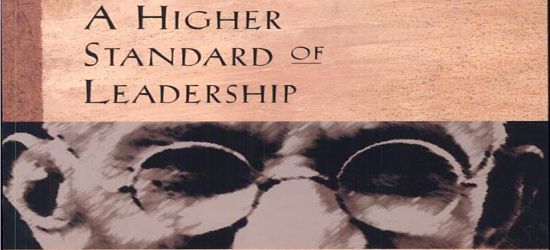Stephen Covey states a universal but rarely understood truth:
"The key to ninety-nine is the one....how you treat the one reveals how you regard the ninety-nine because everyone is ultimately one."
The realization that everyone is ultimately one can never happen at the level of intellect - however much one tries, one cannot see that unity, more so because the nature of the intellect is always to compare, to judge, to evaluate, to justify, to reason.....and so on. We all are conditioned by our environment, by the society, by parents, by our education and all the while huge emphasis is placed on "standing out". It becomes even more prominent by the time we join the workforce. We have difference of opinions, thoughts, ideas, perceptions, attitudes on even simple things, forget the fact how things come up when we are in conflict or worse in competition.The Performance Appraisal Systems at work are designed to accentuate the differences, to pull a few people up and push a few other down.
So with so much emphasis on "being different", "being unique", how does one see the unity? For we are always being pushed and forced to look at otherness thereby conditioning ourselves to constantly see the difference and in the process alienating ourselves from our own Self.
So how does one get to see the Unity?
Two probable answers from one who is still searching.....
a) Grace of the Master and/or
b) Spiritual Practices - Sudarshan Kriya and Meditation.
The mystics say that the unity is realized only in the depths of Meditation. Till this becomes an experiential reality all that is in our hands is how we consciously treat the person - irrespective of his/her age, sex, nationality, religion, caste, designation, title - in front of us. All we can do is to bring forth our best and treat the person with respect and dignity, without hurting or violating their sense of worth. We can do this if and only if we are able to love the person unconditionally in the moment. For Leadership is Love and we cannot experience the Unity we are seeking unless we are deeply in love - with life and with our own selves!


